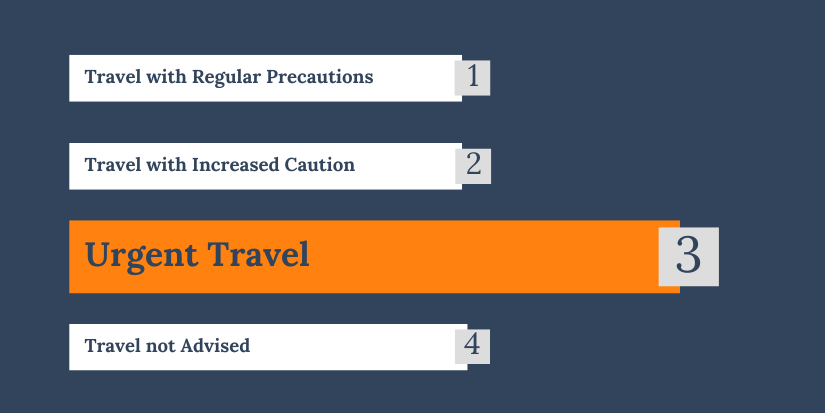
VISA REGIME
For holders of national passports and other travel documents: Visa required
For holders of diplomatic and official passports: Visa required
Note: Holders of emergency travel documents in transit require a visa
ENTERING AND LEAVING THE COUNTRY
Citizens of the Republic of Serbia require a visa for entering Ethiopia.
The visa can be obtained at the Embassy of Ethiopia in Rome, Italy, or through the website of the Ethiopian government https://www.evisa.gov.et/ (which a simpler and cheaper procedure).
Entering Ethiopia requires having a certificate on vaccination against yellow fever (“yellow card”) and against cholera if coming from an area under an epidemic.
The import of cash money in foreign currency needs to be declared if the amount exceeds USD 3,000, and special rules apply for the import and export of gold (up to 100 grams) and precious stones (up to 30 grams).
It is prohibited to export more than 200 Ethiopian birr (approximately seven euros) and more than USD 3,000 in any currency, unless the amount was declared during entry.
It is permitted to bring in two boxes of cigarettes, two bottles of drinks and up to half a litre of perfume.
SOCIAL SECURITY AGREEMENT
No social security agreement has been signed.
USEFUL INFORMATION
HEALTH SITUATION — In addition to vaccination against yellow fever, it is recommended to vaccinate against hepatitis and meningitis. Cholera epidemics are occasionally present, and malaria is widespread in areas with lower altitudes (not Addis Ababa), thus mosquito repellent use is recommended, along with antimalarials.
The overall sanitary situation is unsatisfactory.
Only bottled water is used for drinking, and particular attention should be given to thoroughly wash fruits and vegetables.
SECURITY SITUATION - Given the unfavourable security situation, especially in the northern parts of the country due to the armed conflicts that have been ongoing since November 2020, citizens of the Republic of Serbia are advised to refrain from traveling to Ethiopia. The security situation in the country has further deteriorated since mid-October 2021, resulting in the introduction of a state of emergency throughout the country. Citizens of the Republic of Serbia who are already residing in Ethiopia are recommended to reconsider the reasons for their continued stay in Ethiopia, and in the absence of special business or family-related reasons, to use commercial flights to return to the country.
OTHER — Natural disasters, particularly floods, are possible during the rainy season (June–October). The local currency is the Ethiopian birr, and it is the sole means of payment in the country. The exchange of foreign currency (the euro and dollar are the most widespread) is possible in banks.
Payment cards can in principle be used, but mainly in Addis Ababa, and even there the number of places with card terminals or ATMs is small, thus relying on this type of payment and cash withdrawal is not recommended.
Ethiopia is a multi-confessional country. Dress rules should be observed in Muslim regions. In general, the local population, both Christian and Muslim, is conservative, so permission to photograph people, animals or buildings should always be sought. It is prohibited to photograph government buildings, bridges, dams and similar structures.
Foreigners in Ethiopia, as a rule, have local driver’s licences.
Prior to travel it should be checked whether the mobile telephone operator whose services the traveller is using has a roaming contract with Ethio-telecom.
Contact information
During your stay in Ethiopia, for consular assistance and protection, you may contact the Embassy of the Republic of Serbia in Nairobi (address: 6th Floor, Fortis Tower, Wood Vale Grove, Westlands, Nairobi), via the following phone numbers: +254794588515; +254723163775; (for Serbian citizens in emergencies only: +254734601031) and email: srb.consular.kenya@mfa.rs.
